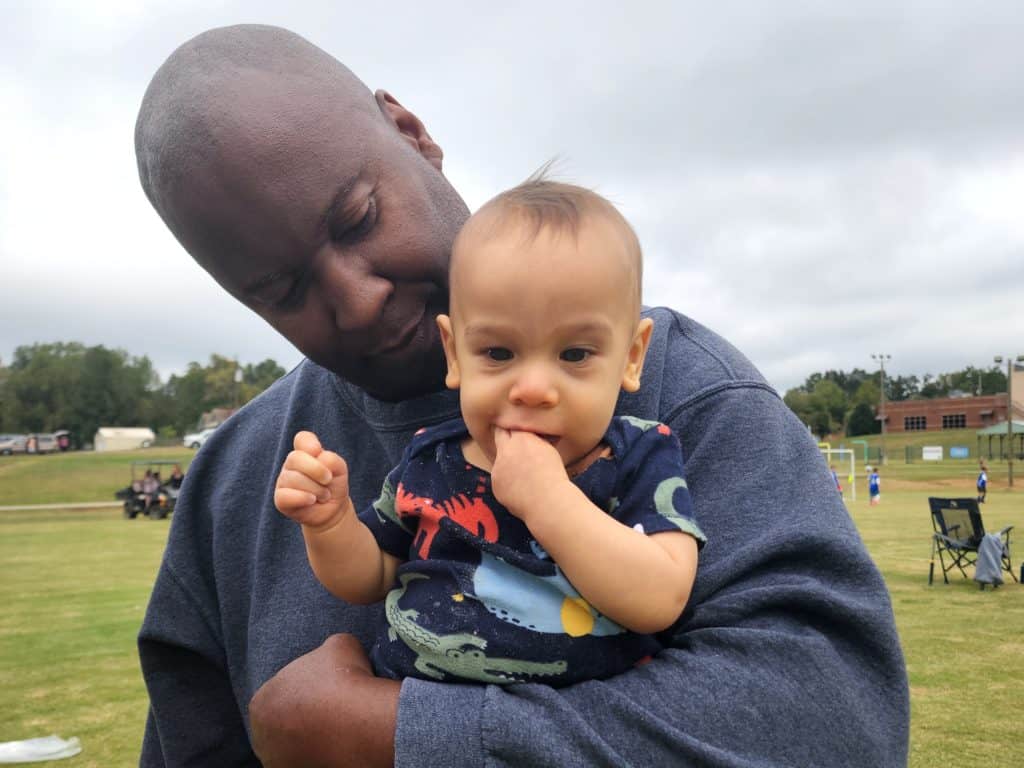Grandparents play a special role in the lives of our children, providing love, support, and cherished memories. While their presence is valuable, it is equally important to establish clear boundaries that promote a healthy and balanced dynamic. In this blog post, we will explore the significance of setting boundaries with grandparents, particularly those who spend a substantial amount of time around your kids, and how it contributes to the overall well-being and harmonious relationships within the family.
1. Respecting Parental Authority:
The first thing that comes to mind when talking about boundaries, is conflict. Nobody likes conflict, especially with family. This is just one of those things we can't avoid once we've become parents though. Setting boundaries with grandparents is not about diminishing their role or criticism, but rather about respecting parental authority and ensuring consistent caregiving and discipline for your children. It is CRUCIAL to establish that you, as the parent, have the final say in matters related to your child's well-being, routine, and discipline. By doing so, you create a stable environment that nurtures your child's growth while acknowledging the love and involvement of grandparents.
2. Consistency and Routine:
I can't emphasize this enough! Children thrive on consistency and routine, and setting boundaries with grandparents helps maintain a sense of stability in their lives. By clearly communicating your expectations regarding meals, sleep schedules, screen time, and discipline, you ensure that your child's needs are met consistently. This consistent approach across different caregiving environments fosters a sense of security and reduces confusion for your child.
We didn't understand this until we were in the thick of it. Our kids would spend EVERY weekend spending the night at their grandparent's house. When Monday came around, the kids were off their rockers! Our strong-willed middle child had the hardest time readjusting to the routine that we kept at our house. We were also still learning how to have boundaries with our kids. It was a complete mess.
3. Cultural and Generational Differences:
Grandparents often come from different cultural or generational backgrounds, which can sometimes lead to differences in parenting styles and approaches. Setting boundaries helps navigate these differences and promotes open communication. It allows you to have honest conversations about your parenting choices, while also showing respect and appreciation for the experiences and wisdom of the grandparents. This mutual understanding paves the way for effective collaboration in raising your child.
As an
4. Clarifying Expectations:
Clearly articulating your expectations to grandparents helps avoid misunderstandings and potential conflicts. Discuss important topics such as discipline, nutrition, safety guidelines, and rules regarding outings or activities. By openly communicating your boundaries and expectations, you create a framework that promotes harmonious relationships and a shared understanding of how to care for and nurture your child.

Let me emphasize this, DON'T SAY SOMETHING IN PASSING! You need to clearly communicate your expectations to the grandparents, making sure to cover all bases. And, NO, saying something to your oldest child in the presence of the grandparents is not considered sharing your expectations. (Believe me, I still try to do this and am always left disappointed.)
If conversations with the grandparents seem a little daunting, try writing some expectations down using the babysitter notepad Don't Kill The Kids. It has space to write info about meals/snacks, bedtimes/naptime, discipline, and suggested activities.
5. Emotional Boundaries:
Setting emotional boundaries is equally important in the grandparent-grandchild relationship. While grandparents play a significant role in your child's life, it is essential to establish that they respect your child's emotions, privacy, and personal boundaries. Encourage open lines of communication so that your child feels comfortable expressing their feelings and preferences. This fosters a healthy emotional connection and helps build trust between generations.
6. Appreciating Grandparents' Role:
Lastly, while setting boundaries is crucial, it is equally important to appreciate and acknowledge the valuable role grandparents play in your child's life. Grandparents provide love, guidance, and wisdom that can enrich your child's upbringing. Encourage a strong bond between your child and their grandparents, fostering opportunities for quality time, shared experiences, and the nurturing of a special connection. With the support of my parents, I have learned how to balance being a SAHM and a Homeschool teacher. Without them, I would be one stressed-out momma.
If you happen to be a grandmother reading this post, I hope you can be a great support to your children and grandchildren by respecting the boundaries that have been implemented. Plus, here is a book recommendation for you!
Conclusion:
Setting boundaries with grandparents is an essential aspect of parenting that contributes to the well-being and harmonious relationships within your family. By respecting parental authority, maintaining consistency and routine, navigating cultural and generational differences, clarifying expectations, establishing emotional boundaries, and appreciating the role of grandparents, you create a balanced environment for your child's growth and development. Open and respectful communication with grandparents nurtures positive relationships, strengthens family bonds, and ultimately provides a nurturing and loving foundation for your child's upbringing.
Related Posts
I would love to include you in my prayers as we both pray over our lives and children. Feel free to email me and let me know how your journey is going.








